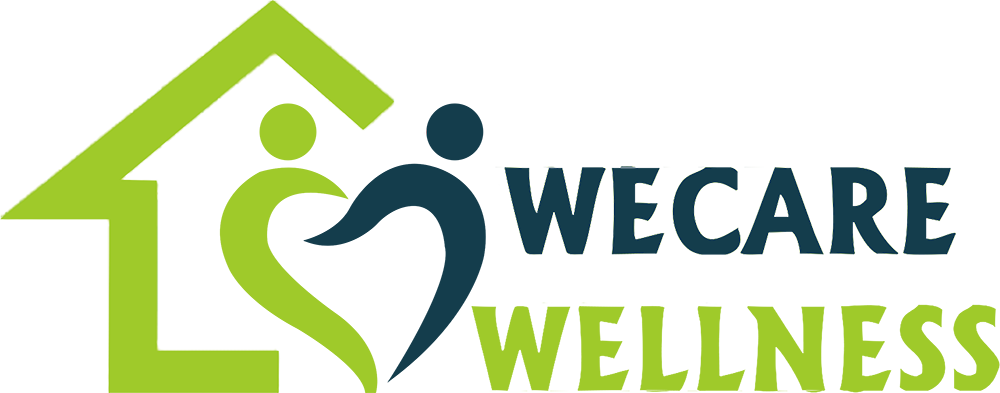Support Training
All of WeCare Wellness staff need to complete Mandatory Training annually. Completing mandatory training helps staff to keep the workplace safe and meet the responsibilities as a WeCare Wellness employee. Depending on your role or the area you work in, you may be required to complete extra training essential for that role/location.
Core Mandatory Training
Hand Hygiene
Effective Hand Hygiene is the single most important strategy in preventing health care associated infections.
Hand Hygiene is a general term referring to any action of hand cleansing. It includes:
• Washing hands with the use of a water and soap or a soap solution, either non-antimicrobial or antimicrobial OR
• Applying a waterless antimicrobial hand rub to the surface of the hands (e.g. alcohol-based hand rub).
When performed correctly, hand hygiene results in a reduction of microorganisms on hands.
Privacy Module - Know Your Boundaries
WeCare Wellness staff has a fundamental role in ensuring the privacy of client’s information. It is important all staff have up-to-date information on the current legislative framework for the management of client’s information. This training will enable staff to identify and describe:
• Your privacy obligations as a WeCare Wellness employee.
• Where to go for further privacy guidance and information
• What constitutes a breach of privacy and consequences of these breaches
• What can help you if you need to report a breach of privacy
• How you can advocate for the privacy of staff, clients and families.
Introduction to Work, Health and Safety
WeCare Wellness uphold staff and client’s Safety and Health by ensuring everyone is in the same page of Work, Health and Safety. This training will enable staff to:
• Identify your roles and responsibilities for WHS
• Identify, manage and reduce risks
• Recognise your responsibility for incident reporting.
Basic Life Support
As a health care worker, you must be given the opportunity to maintain current skills and knowledge in Basic Life Support. The aim is to familiarise participants with the Australian Resuscitation Council requirements for preparing Basic Life Support:
• List the steps in the Australian and New Zealand Commitee on Resuscitation(ANZCOR) flow chart to provide Basic Life Support
• Outline the steps involved in the DRSABCD Basic Life Support Flowchart
• Apply the BLS DRSABCD algorithm to a simulated scenario.
Person Centred Care
This training is designed to assist staffs maximise their ability to provide care which is person centred:
• Involve clients, families and carers in sharing information and decision making about their care
• Draw learning from clients and carer’s experience
• Provide care that reflects the clients’ preferences and values
• Involve the clients and others to ensure continuity of care
• Promote dignity and respect for the clients.
Competency Support
Medication Safety
All WeCare Wellness staff involves in medication administration need to pass Medication Safety Competency prior the practice, which enable staff to:
⦁ Explain safe practice standard
⦁ Convert dosages between the different units of measure
⦁ Check, dispense and administer appropriate medicines, and monitor medicine use;
⦁ Ensure that consumers are informed about medicines, and understand their own medicine needs and risks.
Wound Assessment and management
Wound management is not just about selecting the correct dressing but utilising a collaborative, multidisciplinary team approach, that includes a comprehensive assessment, implementation of evidence based principles of wound management, pressure ulcer prevention and management as well as continual evaluation of the wound healing process. All WeCare Wellness staff involves in wound care need to pass wound care competency prior the practice, which enable staff to:
⦁ To describe the normal wound healing process in order to identify when a wound is no longer following the normal healing trajectory
⦁ To discuss the importance of a holistic assessment of the patient, their wound and their environment
⦁ To describe the principles of wound management
⦁ To list the clinical features, indications, limitations and guidelines for the more frequently used dressing categories
⦁ To provide relevant up-to-date resources for wound management
⦁ Document the assessment, prevention and management of pressure injuries according to the policies
⦁ Discuss the management of skin tears
Fall Management and Prevention
WeCare Wellness aims to minimise client’s risk of fall and provide adequate post fall management via providing staff regular training and competency assessment, which enable staff to:
⦁ Provide person-centred, evidence based care and advice to reduce the
⦁ Likelihood and consequence of falls.
⦁ Prevent falls within legislative boundaries and avoid the use of restraint.
⦁ To support consumers independence and right to freedom of movement.
⦁ Treat falls injuries in compliance with consumers advanced care directive / choices.
Urinary Catheter Management
WeCare Wellness provides urinary catheter support to participants with a support plan enlisting management of in-dwelling catheter (IDC) or suprapubic catheter (SPC). Insertion and removal of in-out (intermittent) catheter is only carried out by RN, ongoing care and observation can be provided by trained support worker or AIN. All WeCare Wellness staff involves in catheter care need to pass competency assessment prior the practice, which enable staff to provide safe and quality service.




